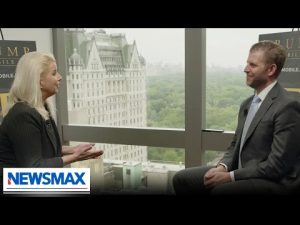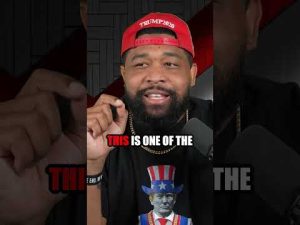In a world where political correctness often reigns supreme, the realm of comedy is increasingly becoming a battleground for those who dare to challenge the status quo. Recently, a line-up of comedians has been making waves by embracing a style of humor that is anything but woke. Interestingly, this growing trend is not just about laughs; it’s also about sparking conversations about cultural narratives and perspectives often overlooked by mainstream dialogues. Audiences are responding, and it’s worth exploring why.
First, let’s address the comments on historical oppression. Some comedians argue that every group has committed its share of misdeeds throughout history. This perspective dismisses the notion that any single group can be painted as the only villain in history. When a comedian likens today’s critics—the so-called “woke” culture—to those who ignore the oppressions of other societies, they provide a refreshing dose of reality. Comedy here becomes a vehicle for discussing uncomfortable truths that challenge the oversimplified narratives many accept today.
Moving on to the banter about current social structures, one comedian’s joke addressed how the LGBTQ+ community wasn’t responsible for building the transcontinental railroad. This satirical jab raises a critical point about historical achievements and who is credited for them. It is an underappreciated fact that serious societal advancements were often spurred by diverse groups—yet the comedic take allows audiences to laugh while also prompting them to think critically about how history is taught and remembered.
In a political landscape where discussions about racism often take center stage, comedians such as Shane Gillis have managed to navigate these waters with humor that harkens back to classic styles. By stating the absurdity of contemporary claims of heightened racism, juxtaposed against historical realities, Gillis pushes his audience to reconsider their views on race relations today. If modern America is the worst it has ever been, what does that mean when compared to the injustices faced in the past? This connection to history invites a dialogue that many politicians and activists may prefer to avoid.
The absurdity continues with discussions about basic human experiences like navigating relationships and societal expectations, as indicated by one comedian’s take on breakups. Despite the heavy themes of racial and historical context, laughter builds community. When a comedian reduces complicated social issues to relatable scenarios, they create a space where audiences can relax, relate, and reconnect with one another amid divisive topics. This is the essence of comedy—it fosters connections through shared experiences and mutual understanding.
As conservative humor continues to carve out its niche, the boundary between antics and authentic critique becomes blurred. Perhaps it’s not just about what is said, but how it resonates with those who hear it. Comedians who engage with their audiences directly and tackle sensitive issues head-on are not just producing comedy; they are creating dialogues that challenge audiences to rethink their positions. As the comedy landscape evolves in this direction, it’s evident that the laughter might be the easiest part—getting people to engage openly and honestly about tough social issues is where the real victory lies.
In the end, as the political correctness continues to dominate mainstream entertainment, the resurgence of non-woke comedy presents an opportunity to explore humor as a form of resistance. It’s a reminder that laughter, indeed, holds power—not just to entertain but to provoke thought and challenge norms. And with all the craziness in today’s world, who wouldn’t appreciate a little laughter that brings clarity to the confusion?







